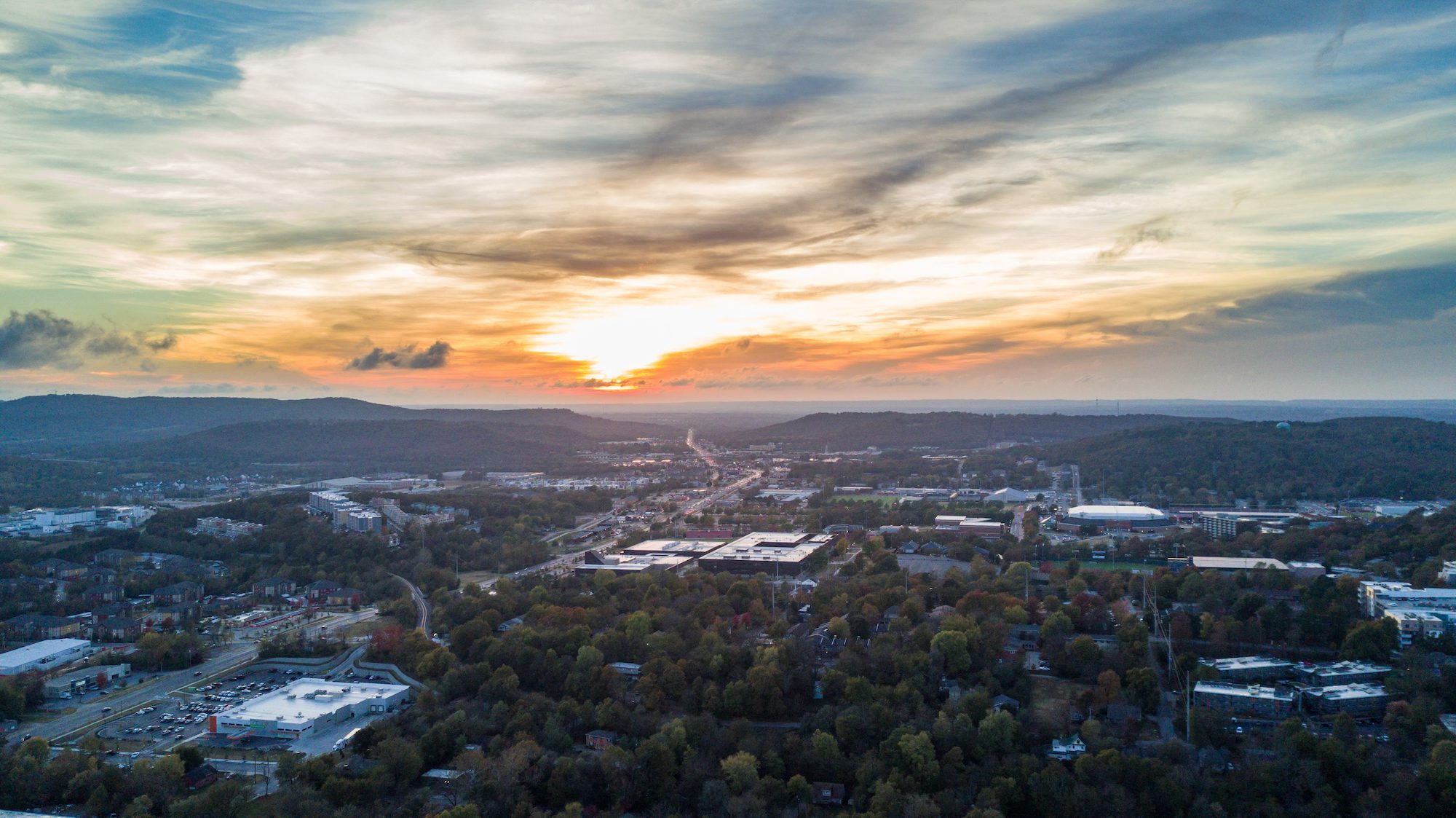Northwest Arkansas remains one of the nation’s most economically dynamic regions, according to a new report, though a slip in the rankings from last year highlights critical needs around housing and infrastructure.
The Fayetteville-Springdale-Rogers metropolitan area came in at No. 34 in Heartland Forward’s Most Dynamic Metros, which factors in 2021 employment, wages, young business activity and other economic data. Heartland Forward is a Bentonville-based think tank that aims to foster economic development in the nation’s midsection.
Among those ranking higher were Austin (No. 4), Seattle (No. 14) and Denver (No. 33), while Dallas-Fort Worth (No. 57) and Kansas City (No. 126) fared worse.
Northwest Arkansas ranked No. 21 last year, which was up from No. 37 in 2020. The back-and-forth stems from Heartland Forward’s analysis of the cost of living, incorporating both inflation and purchasing power among all of the metros examined.
The region typically fares well in this comparison, but that advantage is slimming: NWA housing costs rose from 71.2% of the national average in 2019 to 75.5% in 2021, and the cost of utilities jumped from 79.4% of the national average to 83.2%. Overall cost of living was 93.3% of the national average in 2021.
“Fayetteville would have been in the Top 30 if not for rapidly rising costs. This metro area had the biggest jump in median home prices in the nation in 2022 and also experienced dramatic increases in utility costs,” the report stated. “After adjusting for inflation, Northwest Arkansas’ real economic gains were muted.”
Housing costs dragging down the region’s national rankings is nothing new. The Milken Institute, a global nonprofit think tank, pegged Northwest Arkansas at No. 94 in housing affordability in its 2022 “Best Performing Cities” report.
The new report highlights a consistent refrain from the Council: Northwest Arkansas is at an inflection point. Over several decades its residents have built an economically dynamic region that boasts world-class companies and amenities. Now the region can either become a victim of its own success, with rising costs and falling quality of life, or it can work intentionally and strategically, as it has in so many other arenas, to ensure that all residents benefit from its growth.
Housing and the transportation infrastructure needed by a soaring population therefore have become a primary focus of the Council’s work, including the start of its workforce housing center in 2021 with the help of the Walton Family Foundation. The center is working to promote attainable housing for a wide variety of incomes, such as by helping local officials update zoning policies and make them more consistent across the region.
“The region must act boldly to avoid the new urban crisis that is vexing regions from San Francisco and New York to Seattle, Denver, Austin and Nashville,” the Council wrote in its most recent regional strategy last year. But with a renewed focus on these challenges, “there is every reason to expect that Northwest Arkansas can avoid the pitfalls of the new urban crisis while generating a more inclusive and sustainable prosperity. The time to act is now.”
























